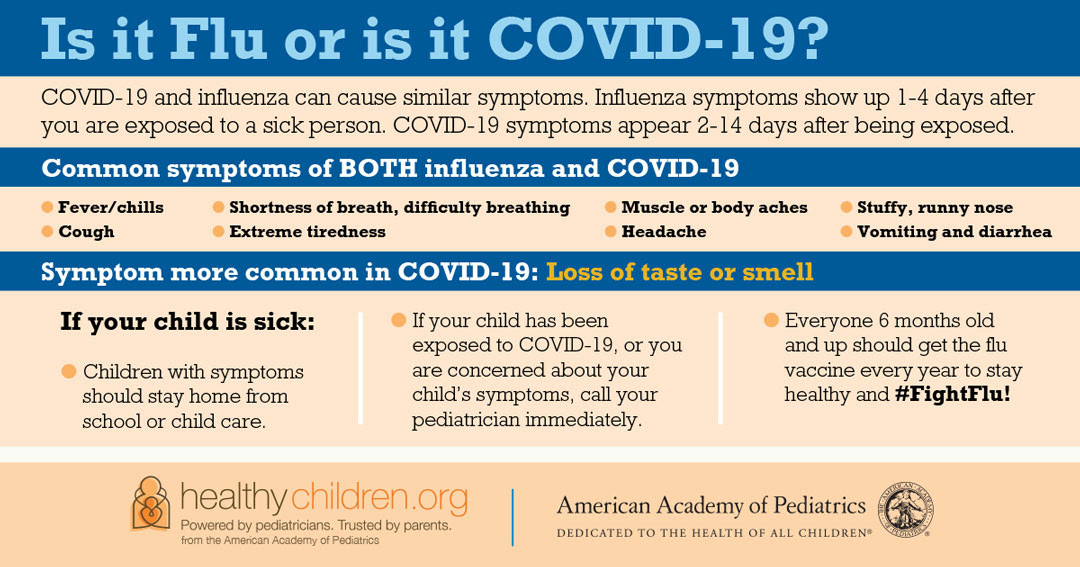Even if your child had COVID-19, they can still get a flu shot once symptoms go away if they have not been previously vaccinated.
COVID-19 or the flu
How Is the Flu Different From COVID-19?

Both the flu (influenza) and COVID-19 are contagious and will be spreading this fall and winter. They have similar symptoms, so it can be hard to tell them apart.
Fortunately, we have a vaccine to help prevent the flu. Make sure your child gets a flu shot, ideally by the end of October or sooner. This is more important than ever this flu season because of the COVID-19 pandemic.
Is it COVID-19 or the flu?
Both infections can cause no symptoms (asymptomatic) or include mild to severe symptoms. Flu symptoms show up about 1 to 4 days after being exposed to a sick person. COVID-19 symptoms appear about 2 to 14 days after being exposed to a sick person.
According to the Centers for Disease Control and Prevention (CDC), shared and unique symptoms may include:
Common symptoms of BOTH Influenza and COVID-19
Fever/chills
Cough
Shortness of breath, difficulty breathing
Extreme tiredness
Muscle or body aches
Headache
Stuffy, runny nose
Vomiting and diarrhea
Symptom more likely with COVID-19
Loss of taste or smell

Why a flu shot is important
Children can get seriously ill from the flu, especially if they did not get a flu shot. During last year’s flu season, 188 children under 19 died of complications from influenza, according to the CDC. Typically, about 80% of children who die from flu are not vaccinated. That’s why children 6 months of age and older should get a flu vaccine before the start of the flu season each year.
The flu shot can be given to children who are otherwise healthy and also children with underlying medical conditions. Children with certain medical conditions (heart or lung disease, obesity, diabetes, or sickle cell disease for example) can be at risk of more severe illness from both COVID-19 or flu.
Where is the best place to get the flu shot for my child?
The best place to get a flu shot is your pediatrician’s office. During the visit, your child can get other vaccinations, if needed. Your child also can catch up on any routine care that you may have had to delay because of the pandemic.
This flu season, you can choose between a flu shot and a nasal spray vaccine. Both protect against the four strains of the influenza virus (two A strains and two B strains) that are expected to cause most flu cases this season. Your pediatrician can help you decide which is best for your child.
Remember
Talk with your pediatrician if you have any questions about COVID-19 or the flu.
